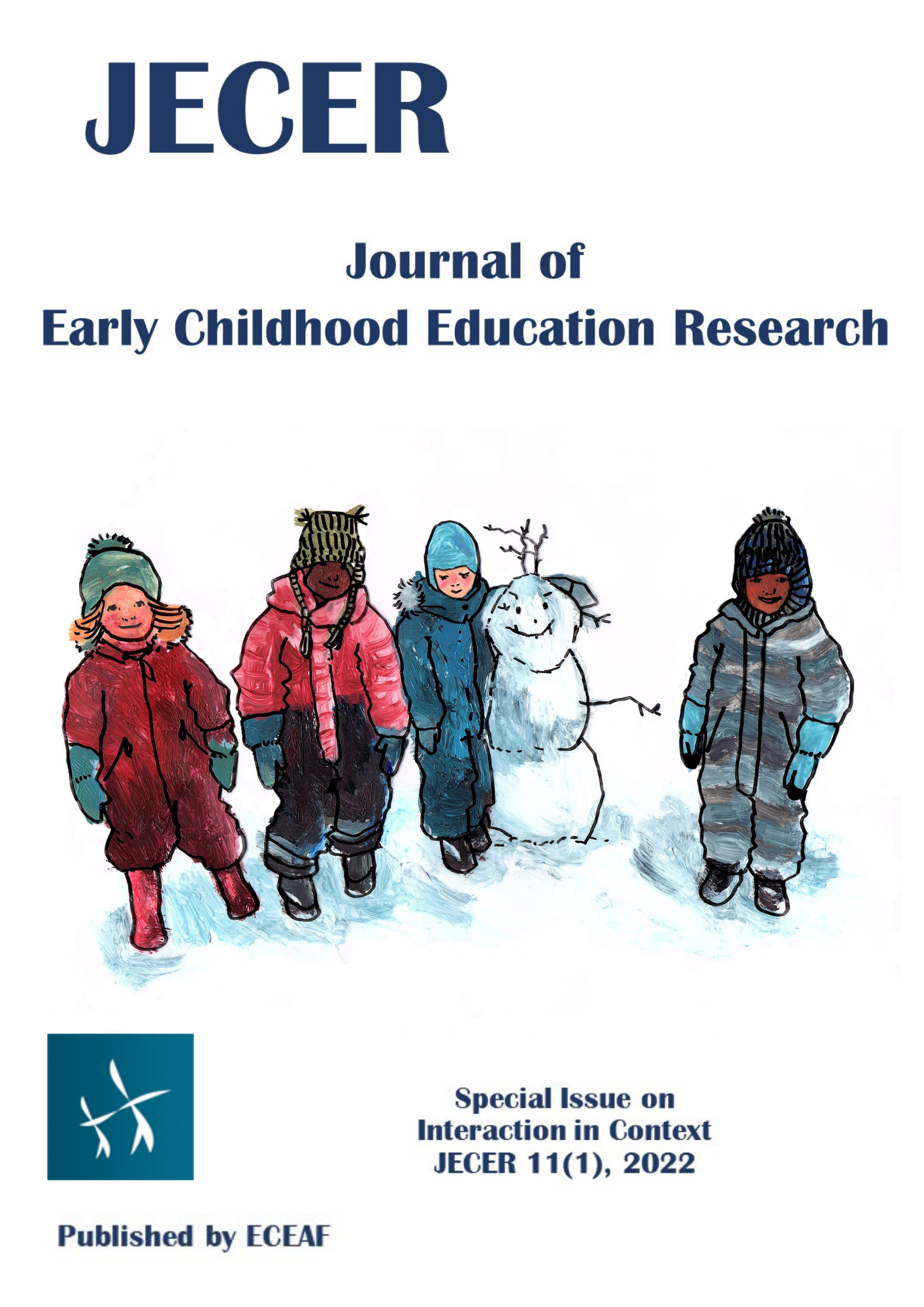The quality of an expert teacher’s and a student teacher’s pedagogical interactions in early childhood education and care examined through the CLASS lens
Keywords:
quality of interactions, ECEC teacher, ECEC student teacher, pedagogy, reflectionAbstract
High-quality interactions between teachers and children in early childhood education and care (ECEC) are at the heart of supporting children’s development, well-being, and learning. The aim of the study was to examine the quality of an experienced ECEC teacher’s and an ECEC student teacher’s teacher–child interactions using the Classroom Assessment Scoring System (CLASS). Furthermore, the study explored the participants’ reflections on their pedagogical interactions and the extent to which they aligned with the CLASS framework. The data consisted of video recordings, written observation notes, and stimulated recall interview (SRI) transcripts. The videos were rated according to the CLASS manual, and the data were analysed using qualitative thematic analysis. The results suggested that participants’ teacher–child interactions were of relatively high quality, although instructional support was an area for development. However, the interactions of the student teacher varied across observation cycles. In the SRIs, both participants emphasised the importance of emotional support and supporting children’s language skills. Differences arose in the participants’ positioning toward teacher identity: the ECEC teacher as expert and the student teacher as developing a professional identity. The results provide novel qualitative insights into teacher–child interactions and using CLASS tool in combination to teachers’ self-reflections regarding their interactions with the children.

